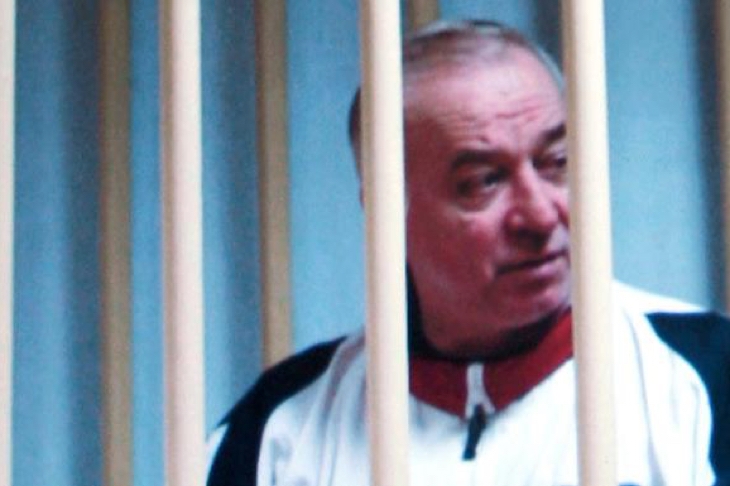As 66-year-old former Russian Military Intelligence Colonel, Sergei Skripal, and a companion lie critically ill in a Salisbury hospital. The familiar question is asked: is this another Russian assassination attempt?
We don’t yet know if Col. Skripal was deliberately targeted, or by whom – the cause of his illness may be entirely innocent – but either way, poisoning appears to be the weapon of choice for Russian-sponsored murders in the UK. Why is that?
Poisons are versatile and flexible. They suit Russia’s newly redeveloped forms of aggressive, covert warfare. They can be ambiguous. A shooting leaves intent and very possibly evidence, but poisoning may leave no trace. How many people has the Russian state killed in the UK in recent years? No one is quite sure, but rumours abound. How better to create an air of menace around the Kremlin. Was Col. Skripal poisoned? Maybe, maybe not. Was 44-year-old Russian whistleblower Alexander Perepilichnyy murdered in Surry in 2012? What about a dozen other killings which have taken place? We don’t know and for whatever reason, the police and government have appeared disinclined to investigate.
Poisoning can also send a very public and dramatic message. Alexander Litvinenko’s slow death from Polonium 210 in a London hospital bed in the winter of 2006 was one of the most public assassinations in history. The Russians think through their actions: this sent a very clear message: enemies of the state will be killed.
Skripal was pardoned as part of a spy swop, but he may still have been worth killing. Putin’s line to date is ‘once a traitor, always a traitor’. If this act was deliberate, the message has been sent. If not, it’ll be a chance for RT (formerly Russian Today), the media lackey of the Russian authoritarian state, to snigger at the ‘Russophobia’ of the British media.
Evidence shows three types of poison being used by the Russians: opioids, radioactive poisons and dioxides, although there are certainly others. Not all may have been used in Britain.
First opiods: Russian Special Forces used a nerve agent in the October 2002 Dubrovka Theatre siege in Moscow. It was rumoured to be fentanyl, an opioid lethal in even tiny doses. Some 130 hostages died. Astonishingly, many of those who led the disastrous operation received awards. If the Russians have used fentanyl in Salisbury, it could suggest a desire to present the poisoning as ambiguous.
Second, radiation poisons: Alexander Litvinenko was the most famous of several possible deaths by radiation poisoning. However, he was probably not the first person to die in this way. The Litvinenko inquiry heard that it may have been tested on a live subject, imprisoned Chechen separatist leader, Lecha Islamov, in 2004. There have been a small number of other potential radioactive poisoning deaths in Russia too.
Third, dioxins: Yuri Shchekochikhin, Russian deputy and journalist, was allegedly poisoned with dioxins, and Viktor Yuschenko, the anti-Moscow candidate Ukrainian presidential candidate was poisoned using dioxides in September 2004.
As well as these known poisons, there are almost certainly more. A department near Moscow is allegedly responsible for their development, and in 2006 Russia passed a law giving its agents the right to kill enemies of the state abroad, giving its actions a veneer of legality. So, the agencies have invested in poison, they have wide permission to do so and many ‘target sets’. In Putin’s Russia, ‘enemy of the state’ is a broad term.
Russia is killing people here because they see the UK as weak. Our response is to wag a boney finger disapprovingly. Simultaneously, we equivocate on tougher anti-corruption laws and allow oligarch mates of the Kremlin to float their companies. We fear using the term ‘cold war’ lest it sends the wrong signals. Our law enforcement appears to actively look the other way when suspicious deaths take place. We do not use unexplained wealth orders to hurt the Putin circle. The Kremlin has been working through strategies on how to confront the West for over a decade. We have barely begun thinking.
More generally, assassination is part of Russia’s complex new form of conflict. The Kremlin has taken the old KGB’s methods, referred to during the Cold War as Active Measures. This was the tool kit of disinformation, subversion, smears, political fronts, compromise and blackmail (kompromat), as well as espionage and assassination. Around it that they have wrapped the full array of state power in a flexible and relatively seamless way; not so much a new military art but a new strategic art. The goal of this art is to damage the West, its alliances and institutions. A potential Russian poisoning in Salisbury is one small part of a much bigger whole.
Robert Seely is MP for the Isle of Wight. He is also a Member of the Foreign Affairs Select Committee. He writes academically on hybrid war and contemporary Russian warfare. He tweets @bobseelymp






Comments